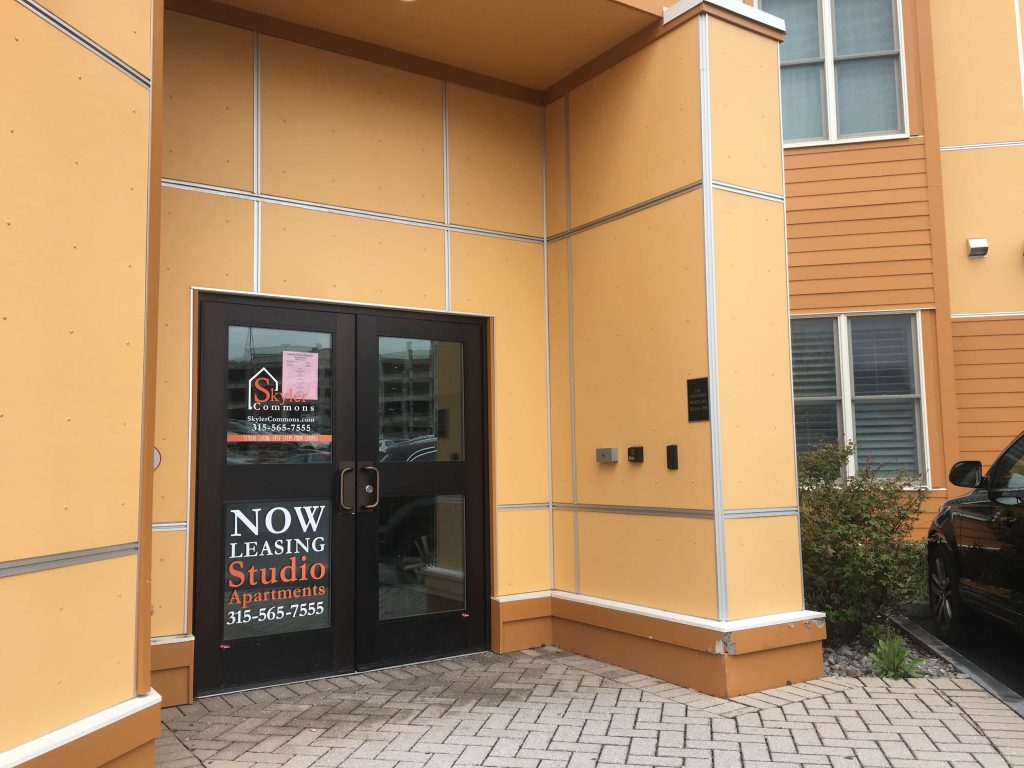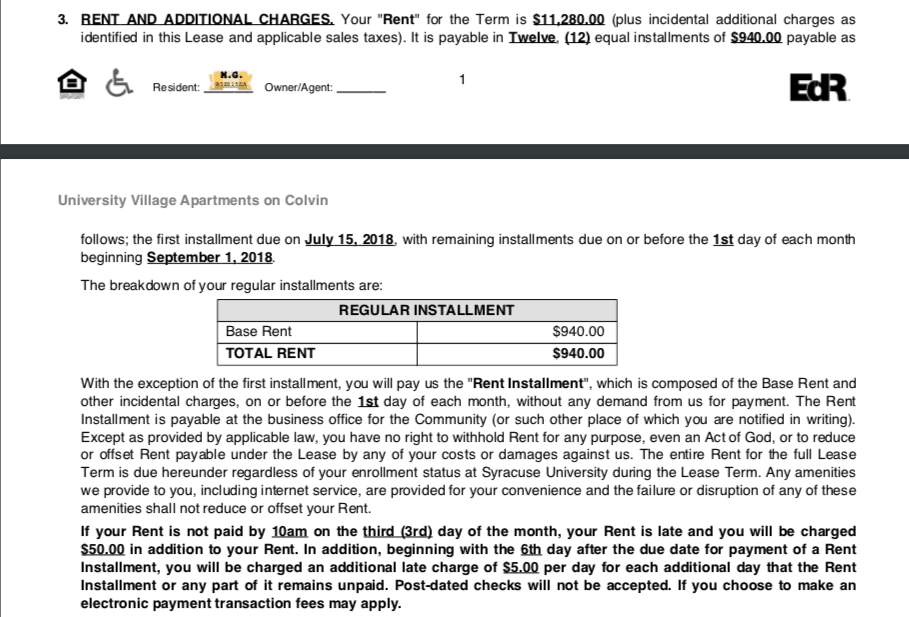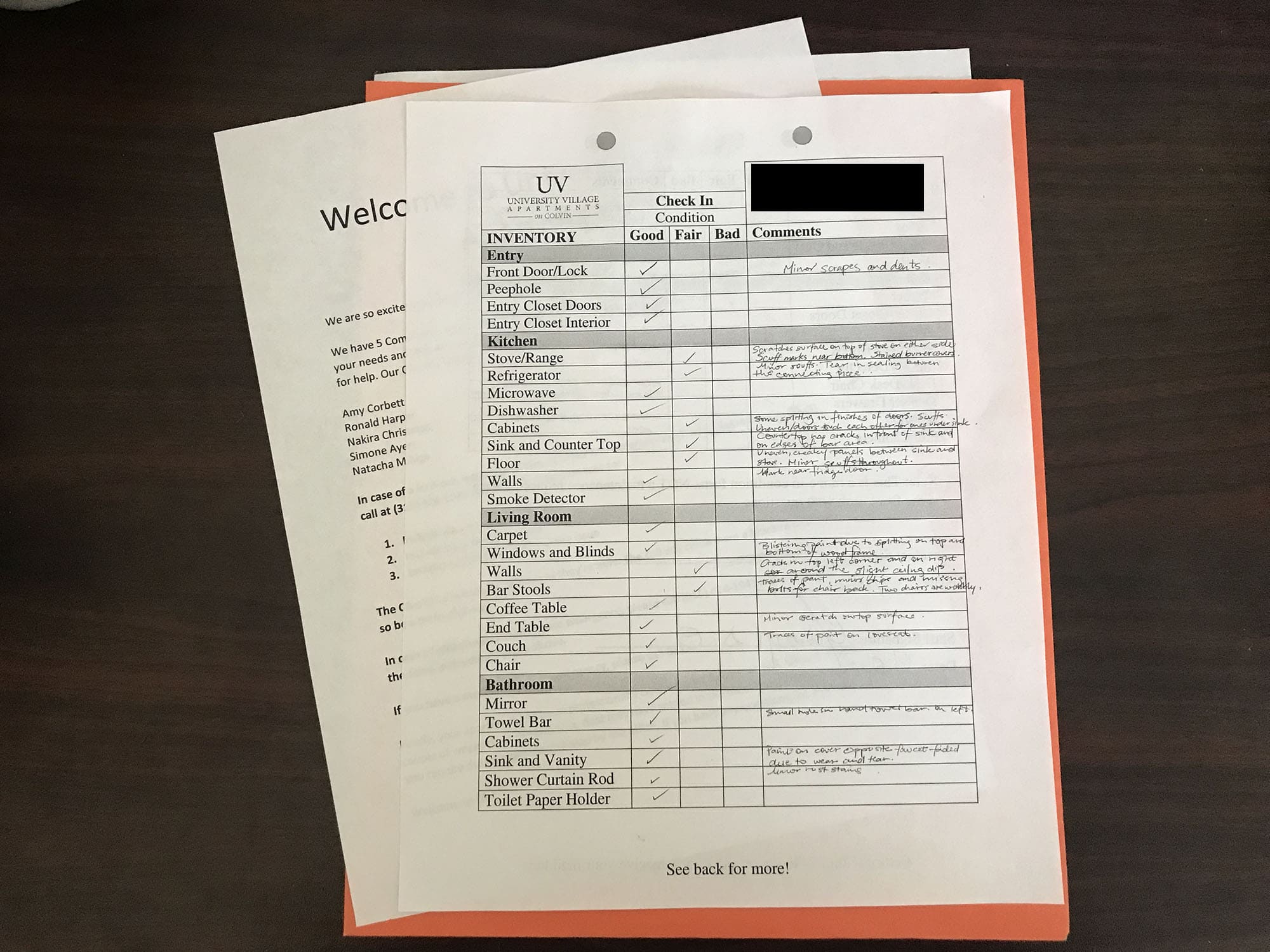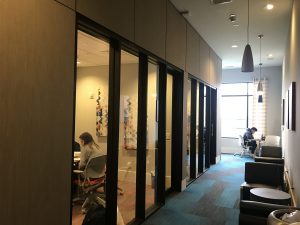Tenant, beware
Tenant, beware

When a student decides to attend SU, they also have to decide where to live. Finding an off-campus apartment is challenging for many people, especially graduate students who may have to search for a new home remotely. Undergrads can look at apartments in person, but that doesn’t mean they’ve ever seen a lease. Michaela Greer spoke to a realtor and an attorney to find out what students need to know.
Roxanne Bocyck, a local Keller Williams Realty agent, said that students, especially those who live in other states or internationally, should consider working with an individual based in Syracuse who can view the property on a tenant’s behalf and make suggestions that don’t come up in a Google search about SU housing. Using a realtor will cost you, however – typically one-month’s rent.
What you see online may not be true to life
Pictures posted online may not reflect the current state of properties or highlight pros without adequately reflecting hazards and problem areas, Boycyck says: “When only using a picture, the student cannot smell mold, or if a previous tenant smoked or if the unit was freshly painted.”
Walking through the apartment may help you tenants save money, too. Looking at heating systems and air conditioning units for condition and location can make a substantial difference in determining estimated utility costs.
Consider other locations
Students who aren’t from the area can overlook locations they might prefer for cheaper rent, better conditions, or easier access to more grocery stores.
“If a student has a car there are nice areas that are only a five or 10 minute ride from SU such as Fayetteville, Liverpool, and North Syracuse,” Bocyck says. “The highways and main roads make a trip to campus an easy commute.”
Realtors know landlords
Tenants should know who their landlord is, and Boycyk recommends looking up owners’ names with the Onondaga County Department of Finance and then checking to see if they’re local.
Taking the extra step to research owners and landlords can clue potential renters into previous complaints, areas of concern and recurring issues.
“For example, if an apartment is owned by ‘Eye Candy, LLC.’ and if the company is out of NYC, it is probably not well maintained,” Bocyck says. “Again, this is where working with a local realtor can help.”
Curious tenants can also call the city of Syracuse to see whether their property is on the rental registry and has been recently inspected, or whether there’s a history of complaints against the property.
After you’ve located a unit, you’ll need to sign a lease to move in. A lease is a written agreement that serves as a legally binding contract between a landlord and a tenant that lists expectations and guidelines both parties must abide by throughout the rental period.

Joseph Zavaglia, a staff attorney at Student Legal Services in Syracuse, says that often when renters are signing a lease, they don’t always realize that they’re signing a contract. Reviewing the lease with a lawyer before signing will help tenants to fully understand their obligations and their rights.
Full-time undergraduate and full- or part-time graduate students who have paid the student activity fee are eligible for a lease review from Student Legal Services.
Look out for penalties and hidden fees.
Check for any penalties and fees that concern late payment, Zavaglia says. Looking at a University Village on Colvin lease, Zavaglia found that in addition to an initial late-payment penalty of $50 accrued after the third day of the month, there is an additional $5 charge per day until the rent and charges are paid in full.
While late payment penalties are commonplace, Zavaglia suggests that there may also be hidden fees and policies in some contracts: “I’ve seen leases where the landlord required the tenant to clean, and if they didn’t the landlord would have the right to enter the property and he or she would wash the floors, do the dishes, clean your bedroom and then charge you some ridiculous fee to do it on a weekly basis.”

Always fill out a condition report and take pictures before moving in.
At the end of the lease, the tenant and landlord will walk through together to survey the property’s condition. The cost of damages caused by the tenant will be deduced from the security deposit, so tenants should know what’s broken before they move in. Zavaglia suggests filling out a condition report form to document the apartment.
“[Students] should have a property condition sheet and mark off what the condition of the apartment is and if there are any damages, record them on that sheet,” Zavaglia says. “They should also take pictures and video to memorialize the condition of the property before they move in.”
Check for language that discusses renovations or construction delays.
Last fall, students like senior Olivia Bosar had to look for alternative accommodations when the Marshall wasn’t ready by the beginning of the semester. But her lease, she says, had a clause stating the Marshall wasn’t responsible for falling behind schedule.
Several students in Bosar’s situation called Student Legal Services for help, Zavaglia says. “Because the clause was included, it wasn’t really possible to get them out of their leases.”








